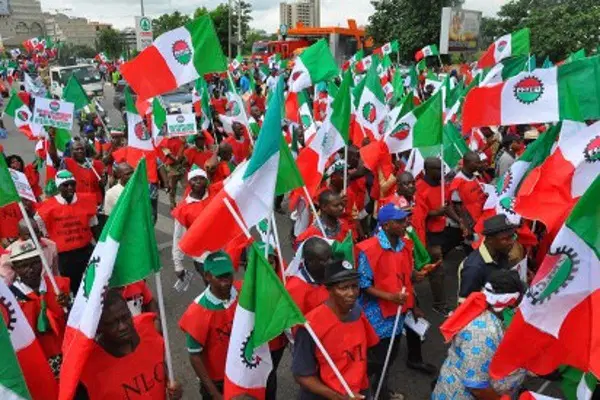The National Union of Chemical, Footwear, Rubber, Leather and Non-Metallic Products Employees in Ilorin, Kwara State, has urged the government to urgently diversify the economy and implement people-focused reforms to address rising job losses and deteriorating workers’ welfare in Nigeria.
The call came on Monday at the opening ceremony of the union’s 33rd Annual Industrial Relations Seminar, themed “Building Human Capacity for Enhancing Productivity and Personnel Welfare in the Midst of Economic Hardship.”
Union President, Bolarinwa Sunday, highlighted that improving productivity amid the current economic challenges is a monumental task requiring deliberate policy interventions.
He emphasized that sustainable growth and better worker welfare hinge on economic diversification, investment in social infrastructure, particularly power and roads, stabilization of the foreign exchange market, labour-inclusive recovery strategies, and policies that promote local production of finished goods.
“Loss of employment as a result of redundancy exercise is on a daily basis, while precarious work is replacing decent work,” Sunday said. “We therefore need to understand the state of Nigeria’s economy and strike the balance between productivity and workers’ welfare; hence the essence of this seminar.”
The union president criticized the increasing trend of casualisation, outsourcing, and contract staffing, labeling them as “obnoxious measures” that employers are using to replace regular employment.
He urged stakeholders to promote decent work by creating more opportunities through value-adding strategies.
“Labour organizations must form a cohesive band to strengthen organising and to make our politicians and policymakers accountable. High cost of governance must be addressed so that public resources do not end up in private pockets again,” he stressed.
Sunday also revealed alarming reports of inhumane working conditions along the Lagos–Sagamu–Ibadan corridor.
He described some workplaces as operating “slave camps” under the guise of providing worker accommodation.
“Majority of these companies are owned by Chinese nationals, but our politicians are fronting for them, thereby making it easy to practice all forms of anti-labour practices. For instance, workers live under the strict control of Nigerian soldiers and police who are manning the gates and apportioning inhuman punishment to dissenting workers. We have made frantic efforts to reach out to these workers but they are not accessible. However, it’s not over until it is over; we are still strategizing through the NLC and the Ministry of Labour. The NLC President has made a categorical statement on the anti-labour practices of these Chinese and with time, they shall be called to order,” he declared.
Also speaking, Peter Godonu, President of the National Union of Textile, Garment and Tailoring Workers of Nigeria (NUTGTWN), hailed the union’s focus on education.
“At a time when workers and their families are confronted with severe economic hardship—rising cost of living, job insecurity, and eroding purchasing power—it is critical to invest in human capacity development. A well-trained, empowered, and motivated workforce is the surest guarantee for enhanced productivity and sustainable enterprise growth. Productivity must go hand in hand with improved welfare and dignity of labour,” Godonu emphasized.
He further stressed the need for solidarity among trade unions in tackling challenges facing Nigerian workers.
“We must resist every attempt by some recalcitrant employers to divide our ranks. By sharing experiences, strategies, and lessons, we are building a collective capacity to respond to new realities in the world of work,” he added.
In his goodwill message, Minister of Labour and Productivity Mohammed Maigari Dingyadi, represented by Mr. Orodiran of the Federal Ministry of Labour and Employment, commended the union for its annual educational seminar.
“I recognize the importance of investing in our workforce. By empowering your members with relevant skills and knowledge, I believe this will enable them to navigate favourably through present-day challenges and thrive to improve their performance and by extension, our economy,” he said.
Similarly, Issa Aremu, Director General of the Michael Imoudu National Institute for Labour Studies, called for subsidies to support workers’ education.
“There should be a special fund through the NLC to support workers’ education. By doing this, they are not only building themselves but also building the nation,” Aremu said.







